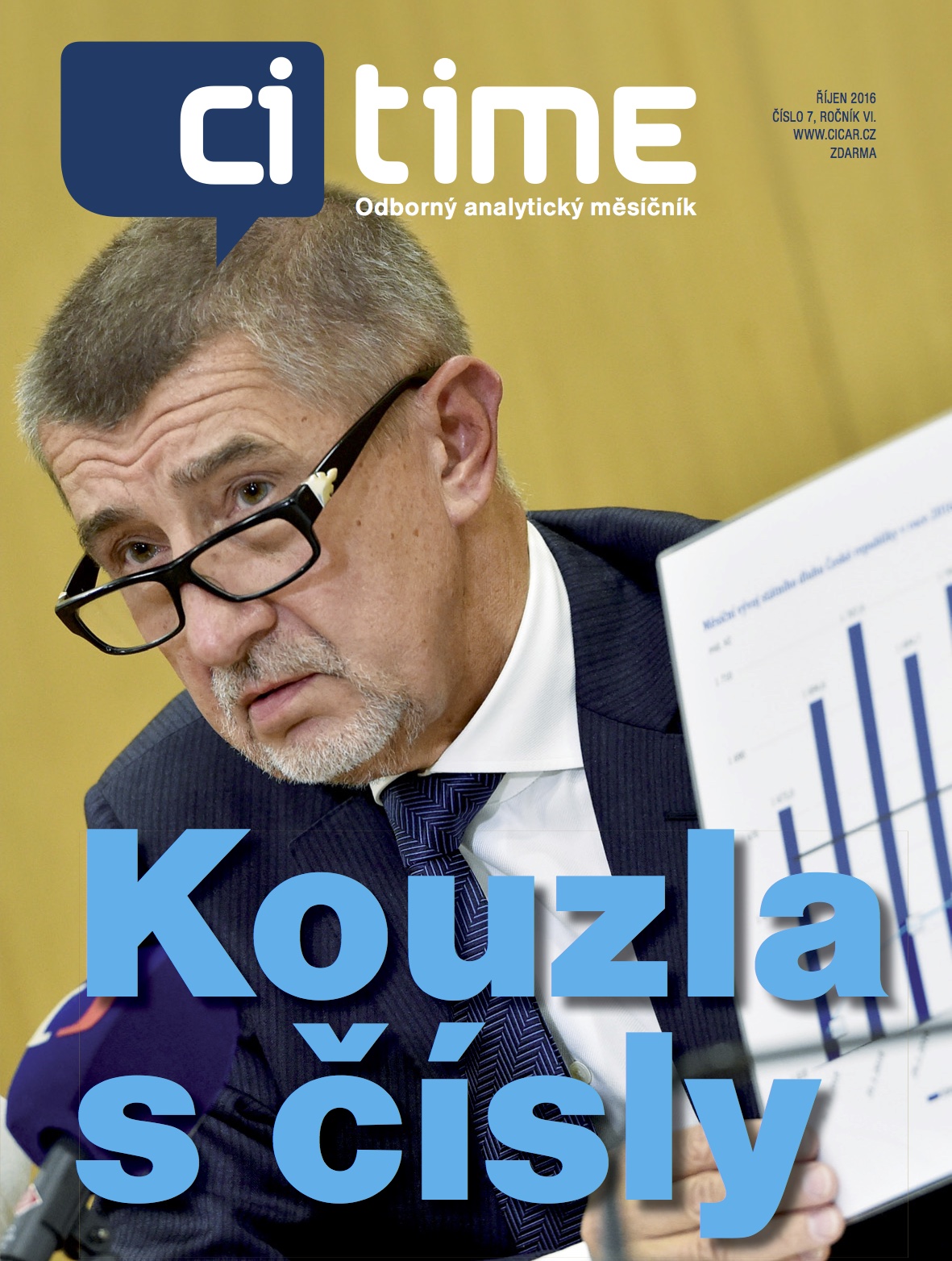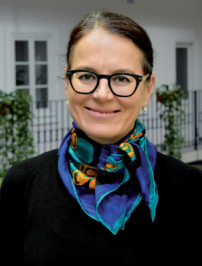Privatization has to be rigorous
About a need for institutional changes within transforming countries, about a threat of political influence on market and economy and, at last, about modern, multidisciplinary education at CEVRO Institute with Slovenian professor of law and economics, Katarina Zajc.
 DE: Professor Zajc, Slovenia has a higher GDP per capita than the Czech Republic. Why?
DE: Professor Zajc, Slovenia has a higher GDP per capita than the Czech Republic. Why?
Zajc: Slovenia was the most developed county in Yugoslavia. After the dissolution of Yugoslavia, Slovenia had a very good starting point and began to ambitiously privatize state run industries and businesses. However, in recent years, Slovenia has failed to take its privatization policies serious and is now in danger of falling behind. I am afraid that the Czech Republic is going to overtake Slovenia regarding economic development in a couple of years – in case Slovenia is not doing her homework and fails to adjust her institutional policies.
DE: Isn’t Slovenia still the role model in the region when it comes to economic policies?
Zajc: Not anymore. Just look at the recent takeovers of Slovenian businesses by Croatian companies and troubles in banking sector during the financial crisis. Slovenia has lost a lot of her economic strength by neglecting the importance of the private sector.
DE: What is the root cause of this negligence?
Zajc: I believe the heart of the matter is institutional. The Czech Republic was very smart in the way she conducted the privatization process. Institutional changes are key and Slovenia failed to make the adjustments
DE: You are a trained expert of both law and economics. How much has your education in the United States helped your career in native Slovenia?
Zajc: After my education in the US, I came to Slovenia and I experienced that my foreign education turned out to be a competitive disadvantage when I tried to get a position in academia. I could have easily found a job as a professor abroad, but in my homeland, I was regarded as an outsider.
DE: The Cevro Institute puts a great emphasis on having an internationally trained staff of lecturers. Some of your former peers from GMU are joining Cevro’s new PPE-program. Where do you see differences between foreign programs and the one here in Prague?
Zajc: The main difference between GMU and Cevro is that the former focuses mainly on the studies on economics in its different variations. Cevro’s PPE-program offers a broader approach to the studies of economics. I think it is great that we have so many Professors from the US that are coming to Cevro – I have especially Peter Boettke in mind. He is the leading figure in what the Cevro Institute wants to achieve. I don’t think that you could get anyone better than him. It wasn’t without a reason he became President of the Mont Pelerin Society. When it comes to foreign lecturers I go with: “the more the better!”
DE: Why have you decided to join the program as a guest lecturer?
Zajc: My incentives to come here were certainly not money driven. I wanted to see for myself what is actually offered here at Cevro. My main motivation was curiosity. I have always been missing similar institutions to the ones I visited in the US. Now, I am certain that Cevro can and will provide a program that might be unique in the whole of Europe.
DE: As a legal scholar you also have a background as an economist, and experienced firsthand politics as a member of the Slovenian Judicial Council. You worked both in academia and in business. Which of the fields you were involved in play the major role in liberalizing society?
Zajc: I see the main forces of a free society in business and trade. Unfortunately, sometimes politicians are so strong that they are blocking processes that are essential for a free market to function properly. For instance, in Slovenia, one third of all assets are still in government hands. That is why politicians have such a great economic power that ties to their political power. This linkage is mainly responsible for the infringements of the free market system. I expect the private sector to be the main force behind market reforms in the future.
DE: Where do you see the role of academia in shaping society towards more individual freedom?
Zajc: Any kind of educational institution exposes students to many different areas. For instance, the Cevro Institute exposes its students to certain areas that will have an impact on them and eventually shape society to a certain degree. At the end of the day, it is up to each student what he or she will do with the information provided.
DE: What is the message you have for your students?
Zajc: I want my students to understand that they are responsible for themselves. Government is not going to take care of them. And it is not government’s role to take care of them. Everybody should act in accordance to his own abilities and ambitions and no harm should be cause in trying to achieve individual goals. If my students got that message, I would be more than happy.
DE: Professor Zajc, thank you very much for this interview.
KATARINA ZAJC
- former Alpine Skier and represented Yugoslavia in the Winter Olympics in 1988.

- holds a Law degree from the University of Ljubljana and interned for the World Bank
- holds a LL.M. degree from Yale University. Professor Zajc is a full professor of Law and Economics at University of Ljubljana Law School.
- gained a PhD in Economics from George Mason University (GMU) in Virginia where she received the Snavely Award for best graduating student in graduate economics class of 97
- teaches Law and Economics of Property Rights as a visiting lecturer at Cevro Institute’s new Master’s program Politics, Philosophy, and Economics (PPE).